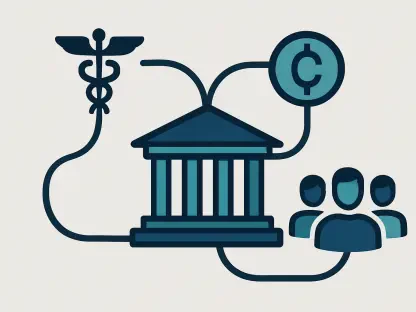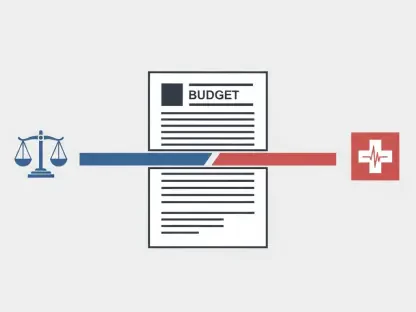In a significant development for cardiac care, Kerendia, a drug crafted by Bayer, has recently gained FDA approval to treat heart failure patients classified with moderate ejection fraction, defined as having a left ventricular ejection fraction (LVEF) of at least 40%. This approval potentially heralds new horizons for improved health outcomes among those battling heart conditions, with the drug offering hope for enhanced care through advanced therapies.
Opening New Possibilities in Heart Failure Treatment
With heart disease standing as a leading cause of mortality globally, the approval of a new drug like Kerendia shifts the landscape for millions suffering from heart failure. Patients challenged with moderate ejection fraction heart failure have often seen limited options, making this development noteworthy. The integration of Kerendia could enable a profound improvement in patient outcomes, offering more precise and tailored treatment approaches that promise to reshape their quality of life. The onus is now on healthcare providers to apply these advances and pave the way for transformative care.
Understanding the Impact of Heart Failure with Moderate Ejection Fraction
Heart failure with moderate ejection fraction, marked by an LVEF ranging from 40% to 55%, remains among the most challenging heart conditions to treat. Of the 6.7 million adults in the United States living with heart failure, over half fall within this LVEF range. This segment often faces additional health challenges such as obesity, hypertension, and chronic kidney disease (CKD), which can complicate treatment plans and outcomes. It underscores the necessity for innovative therapies like Kerendia that address the multifaceted nature of heart failure in these patients.
The Science Behind Kerendia’s FDA Approval
Kerendia’s approval is largely based on vigorous research, exemplified by the FINEARTS-HF trial. This pivotal study demonstrated that the drug could achieve a 16% reduction in cardiovascular death and heart failure events when used in conjunction with standard care methods. Compared to existing treatments, Kerendia contributes a complementary approach that bolsters standard care, showing promise in efficacy and safety for individuals suffering from moderate ejection fraction heart failure. Such rigorous scientific backing is crucial in broadening the scope of heart failure management.
Expert Insights and Clinical Perspectives
Cardiologists are calling Kerendia a breakthrough, potentially a game-changer for those with heart failure. Dr. Alan Jacobs, a leading cardiologist, highlights the drug’s ability to offer broader management options, enhancing treatment effectiveness across a range of cardiovascular complications. Patients have shared their experiences, noting significant improvements in their quality of life after beginning Kerendia treatment. Together, these insights reflect an evolving cardiovascular disease management paradigm that expands treatment possibilities and patient confidence alike.
Practical Steps for Implementing Kerendia in Treatment Plans
For healthcare providers, integrating Kerendia into treatment regimens involves specific considerations and strategies. Providers must be diligent in monitoring patient responses and adapting treatment plans to address any side effects. Successful implementation depends on collaboration between cardiologists and general practitioners to formulate a cohesive strategy that optimizes patient outcomes. Establishing a framework for regular consultations and adjustments may prove beneficial to maintaining the highest standard of care.
With Kerendia’s approval, doors have opened to a new realm of possibilities in heart failure treatment, merging scientific discovery with practical application. Patients previously facing limited options now have a pathway to improved health. As the medical community adapts to these innovations, fostering collaboration and continuously monitoring patient experiences is necessary to harness the full potential of this development. Confronting the challenges in the heart of advanced heart failure therapies has reshaped what treatment can achieve, urging stakeholders to remain vigilant in embracing these changes for a healthier, hopeful future.









